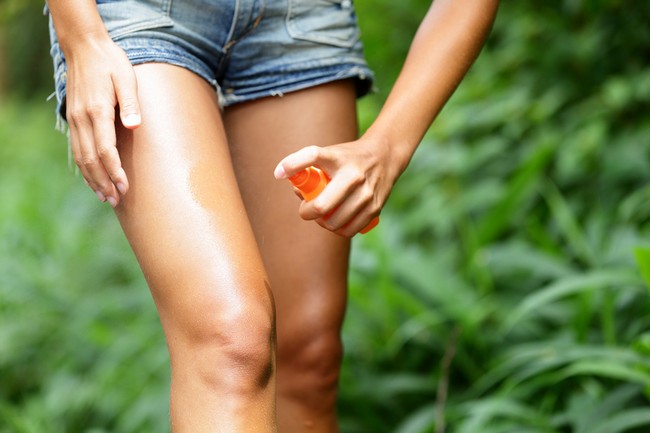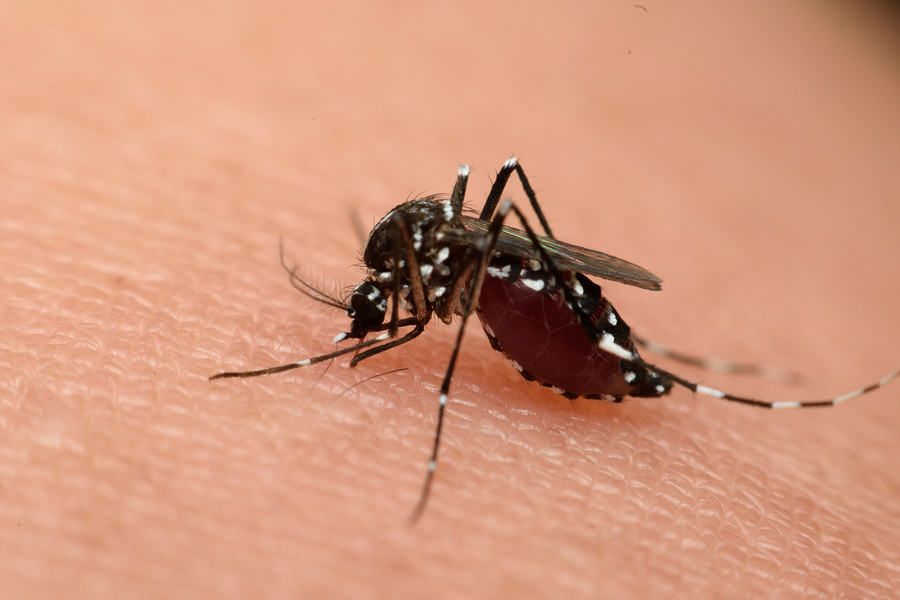- Make It Yourself Lavender Heart-Shaped Bath Bombs!
- 20 Things You Never Knew About “Down There”
- 12 Best Foods For Those Suffering From Arthritis Pain
- 12 Personal Hygiene Mistakes Almost Everyone Makes (Mom Never Told You About #4!)
- 15 Medicinal Plants And Herbs From The Cherokee People
- 12 Mind-Blowing Benefits Of Drinking Coconut Water During Pregnancy
- 12 Outstanding Winter Foods That Won’t Fatten You Up Like A Christmas Turkey
Why Do Mosquitos Bite You?

Photo credit: bigstock
For some people, mosquitos are the bane of their existence during the warm summer months, while for others, they are largely a non-issue. Indeed, most people realize early in life that these pesky insects seem to gravitate toward some individuals a lot more than others. But why is that? Why are some people natural mosquito magnets while others are spared? Is it because of genetics, diet, or the smell of our skin? Let’s get to the bottom of this mystery and explain why mosquitos might take such a liking to you— and what you can do about it.
1. The role of blood type
Many people are unaware that their blood type may be a factor in whether mosquitos view them as an enticing target or not. It is likely that fewer still even know what their blood type is in the first place. It is worth asking your doctor to find out, because depending on what the answer is, it may confirm how attracted these annoying insects are to you.
Studies have shown that people with type O blood are bitten the most by mosquitos. Individuals with type A blood where bitten the least, and type B fell somewhere in between.
What is also interesting is that 85 percent of people’s bodies actually produce a secretion on their skin that can be used to identify their blood type. This is most likely how mosquitos identify their targets.
RELATED: This One Natural Oil Is Just As Effective At Repelling Mosquitoes As DEET
2. Sweat and microorganisms
Research has shown that hot, sweaty skin is more attractive to mosquitos than drier skin. Perspiration obviously gives off an odor, which mosquitos can zero in on and use to select their next meal. Compounds in sweat like lactic acid, ammonia, and more seem to be the culprits here.
In addition to sweat, the number of microorganisms living on your skin is also a factor. Everyone has tiny organisms living on their skin which are invisible to the naked eye. This is normal and natural. A study found that mosquitos were more attracted to people with more bacteria on their skin due to the subtle scent they produce. This might explain why mosquitoes frequently bite people on their bare feet and ankles since these regions are frequently covered with shoes and socks and have more bacteria than other parts of the anatomy. One interesting difference among the participants was that those who were most attractive to mosquitoes had larger concentrations of bacteria, but fewer varieties on their skin.
3. The color of your clothes
Believe it or not, the color of your shirt might be a significant factor in how likely you are to be feasted upon by mosquitoes. We have already established that mosquitoes use their sense of smell to select their targets. But these insects also have very keen eyesight, and certain colors attract their attention a lot more than others. According to Johnathan Day, a professor of Medical Entomology at the University of Florida, wearing bold colors that contrast with natural surroundings (red, dark blue, black, etc.) will attract more attention from mosquitoes. Does this mean you have to go around wearing camo clothing all summer long? Probably not, but it is just something to be aware of if you are prone to being bitten.
Continue to Page 2
4. Drinking Beer
Believe it or not, a 2002 study found that participants were more likely to be bitten after drinking one 12-ounce can of beer than before. It is not entirely clear why there was a correlation between beer drinking and becoming a mosquito magnet, but the scientists think it may have been due to a slight increase in skin temperature and alcohol concentration in sweat which the mosquitoes may have picked up on.
RELATED: 10 Ways To Avoid Mosquito Bites This Summer
5. Pregnancy
One study in Africa revealed that pregnant women are quite appealing to mosquitoes. This could be due to the fact that pregnant women tend to exhale greater volumes of carbon dioxide than non-pregnant women. Mosquitos are attracted to the scent of CO2 and women carrying a child in the womb also have a slightly higher skin temperature. Unless you are living in a malaria zone, this is probably not a cause for concern if you are pregnant, but you may want to take some extra precautions since no one likes being bitten by mosquitoes anyway.
Well there you have it. As you can see, some of these factors are inside your control, while others are not. Do what you can to reduce your risk of being bitten and let these little pests choose someone else as their next meal.
References:

































